Russia, China open cross-border bridge to expand ties amid US hostility
Russia and China have inaugurated a new cross-border bridge in the Far East in a bid to further boost trade and counter rising US-led sanctions as Washington and Beijing traded threats of military conflict over Taiwan.
The bridge linking the Russian city of Blagoveshchensk to the Chinese city of Heihe across the Amur River - known in China as Heilongjiang – was opened on Friday with a distance of just over one kilometer that cost 19 billion rubles ($342 million) to construct, RIA news agency reported.
"In today's divided world, the Blagoveshchensk-Heihe bridge between Russia and China carries a special symbolic meaning," said the Kremlin’s representative in the Russian Far East, Yuri Trutnev, in remarks marking the opening of the trade route.
Russian authorities further underlined that the bridge would bring Moscow and Beijing closer together by expanding trade after the two powers declared a "no limits" partnership back in February, just prior to the start of Russia’s military operation in Ukraine.
Russia's Transport Minister Vitaly Savelyev further underlined that the bridge would help increase bilateral annual trade between the two countries to more than 1 million tons of goods.
China’s Vice Premier Hu Chunhua also welcomed the development, saying during opening ceremonies for the bridge that Beijing seeks to deepen practical cooperation with Russia in all areas.
The bridge had been under construction since 2016 and was completed in May 2020 but its opening was postponed over cross-border COVID-19 restrictions, according to BTS-MOST, the firm building the bridge on the Russian side.
BTS-MOST further explained that freight traffic on the bridge would shorten the travel distance of Chinese goods to western Russia by 1,500 kilometers (930 miles).
According to the report, vehicles crossing the bridge must pay a toll of 8,700 rubles ($150), a price that is expected to drop as toll fees begin to offset the cost of construction.
Russia announced in April it expected commodity flows with China to surge, and trade with Beijing to reach $200 billion by 2024.
China remains a major purchaser of Russian natural resources and agricultural products.
The development came amid Western criticism of Beijing’s refusal to condemn Moscow’s military operations in Ukraine while also censuring US-led sanctions against Russia.
It also comes as tensions with the US are taking a turn for worse. On Friday, US and Chinese defense minister held a tense meeting, clashing especially over Taiwan.
Addressing the Shangri-La Dialogue in Singapore, Pentagon chief Lloyd Austin said Washington will do its part to manage tensions with China and prevent conflict.
The world's two largest economies have clashed in recent months over everything from Taiwan and human rights to military activities in the South China Sea.
Austin and Chinese Defense Minister Wei Fenghe met on Friday and reiterated they want to better manage their relationship although there was no sign of any breakthrough in resolving differences.
Austin said the United States would continue to stand by its allies, including Taiwan.
Austin said there had been an "alarming" increase in the number of unsafe and unprofessional encounters between Chinese planes and vessels with those of other countries.
US President Joe Biden declared last month that his country would get involved militarily should China attack Taiwan, although his administration has since claimed that American policy on the issue has not changed.
Washington claims a long-standing policy of strategic ambiguity on whether it would defend Taipei militarily.
Defense Minister Fenghe warned Austin that Beijing will "not hesitate to start a war" if Taiwan declares independence.
"If anyone dares to split Taiwan from China, the Chinese army will definitely not hesitate to start a war no matter the cost," defense ministry spokesman Wu Qian quoted the minister as saying during their first face-to-face meeting.
The Chinese minister vowed that Beijing would "smash to smithereens any 'Taiwan independence' plot and resolutely uphold the unification of the motherland," according to the ministry.
Wei also "stressed that Taiwan is China's Taiwan... Using Taiwan to contain China will never prevail," the ministry added.
‘Ghost town’: 70% of Jabalia buildings destroyed by Israel
Mother’s Day: Sareh Javanmardi’s inspiring journey as Paralympic champion and mother
Russia downs over 40 Ukrainian drones as Putin vows 'destruction' on Kiev
VIDEO | Yemen: A bone in Israeli neck
D-8’s role in Iran’s economy after Cairo summit
China slams US as ‘war-addicted’ threat to global security
China ‘firmly opposes’ US military aid to Taiwan
VIDEO | Press TV's News Headlines


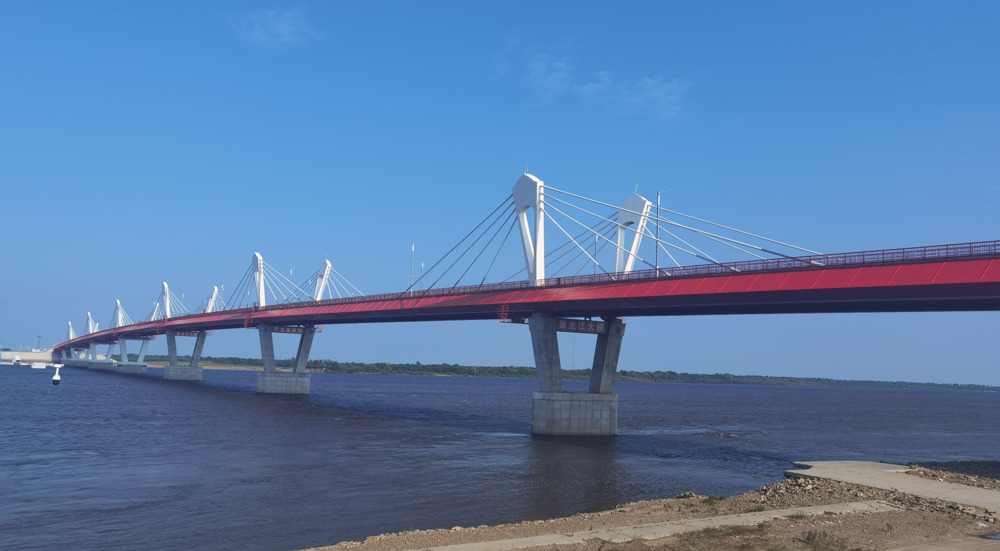
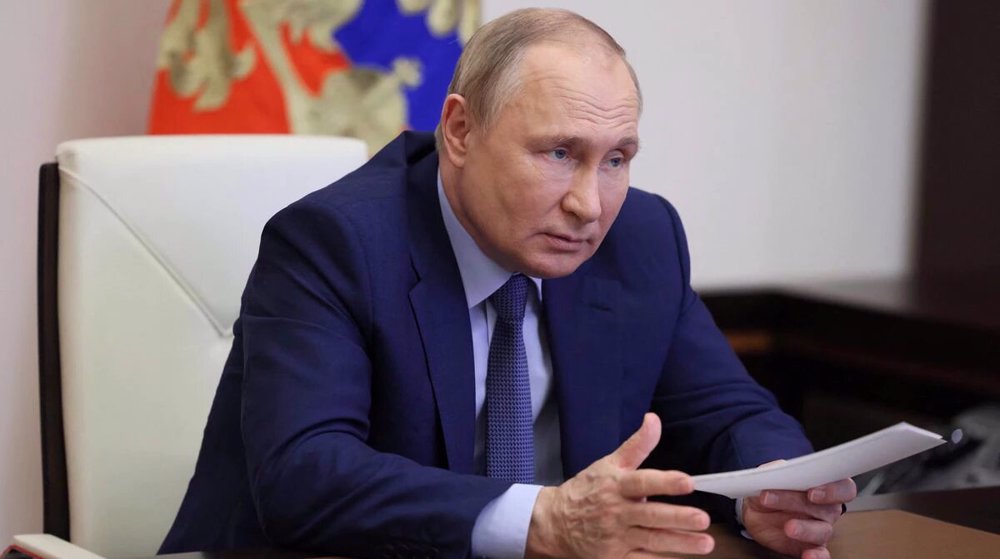
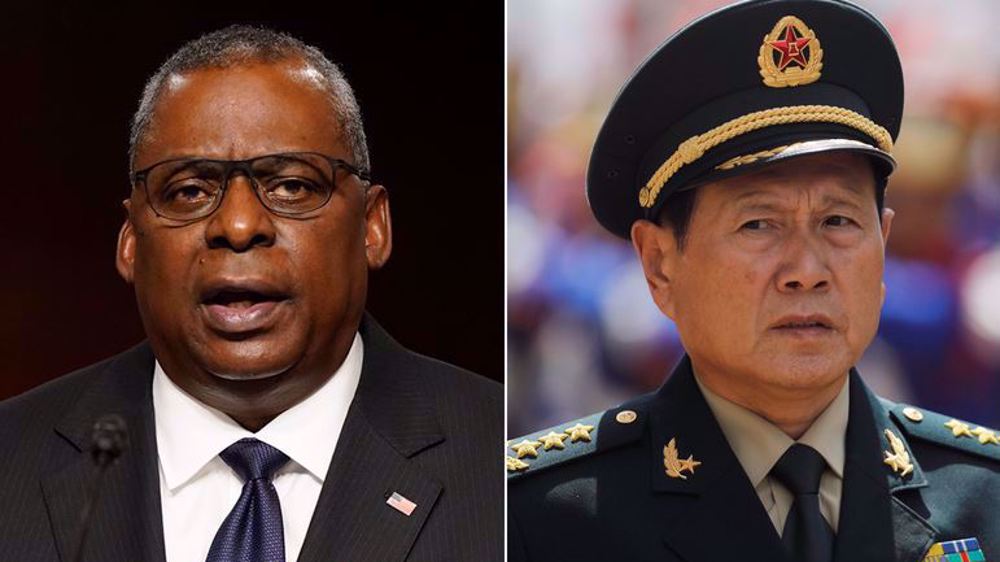






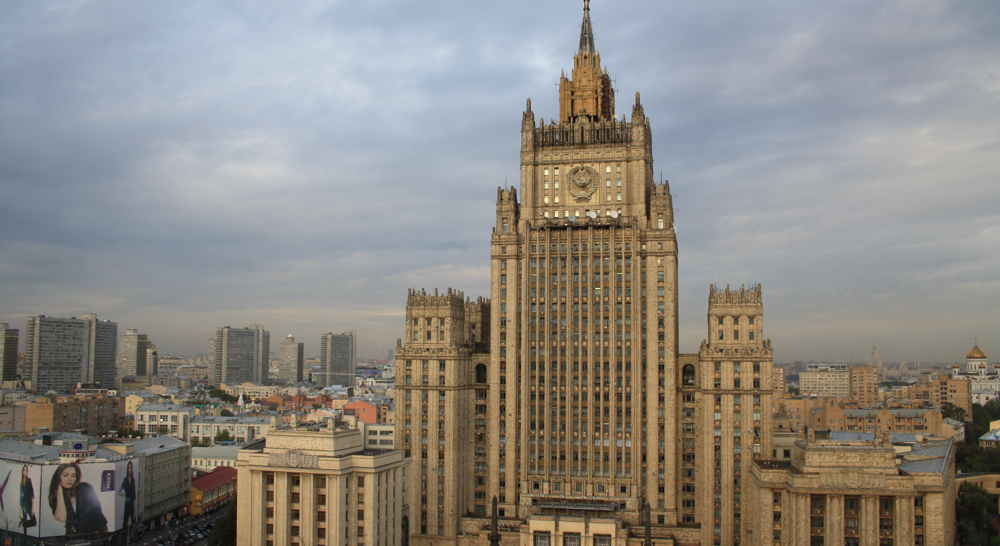
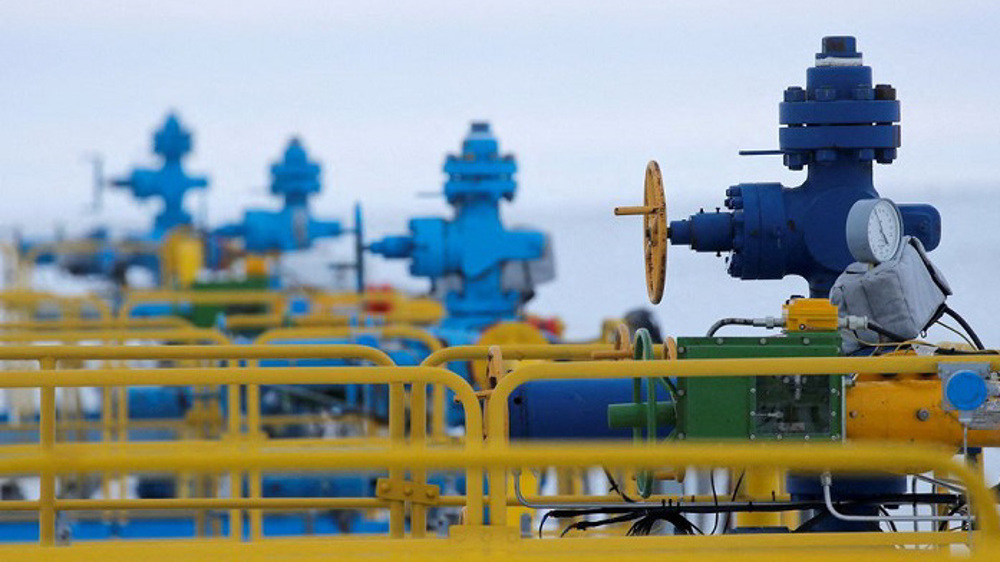
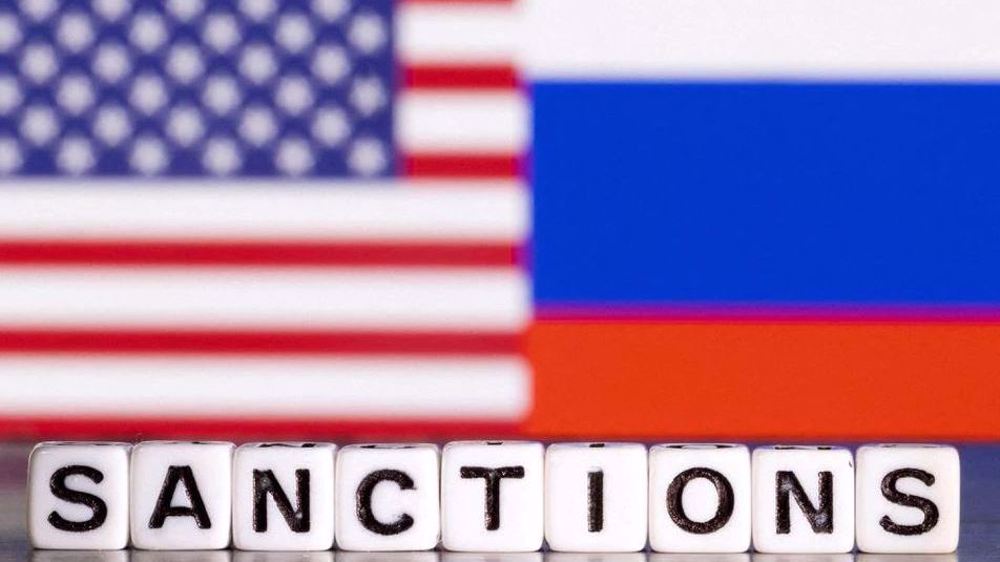

 This makes it easy to access the Press TV website
This makes it easy to access the Press TV website